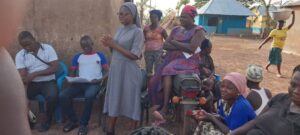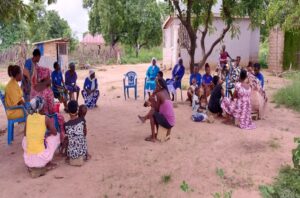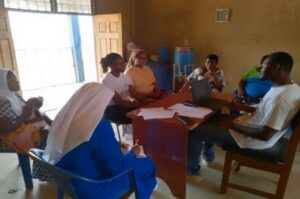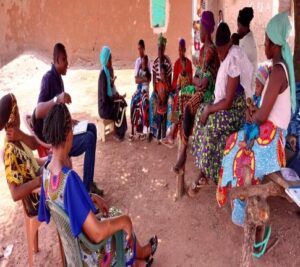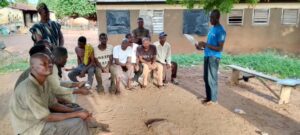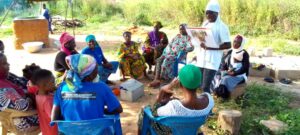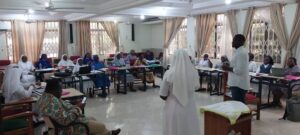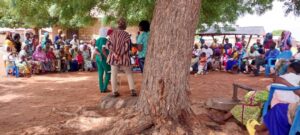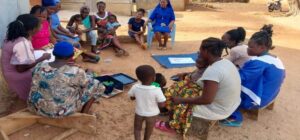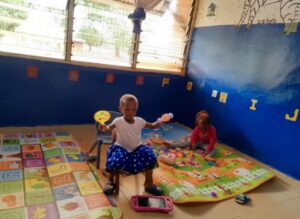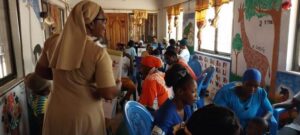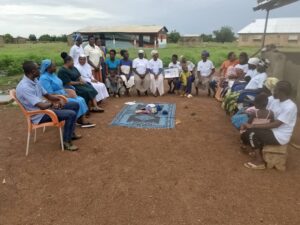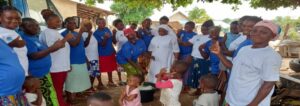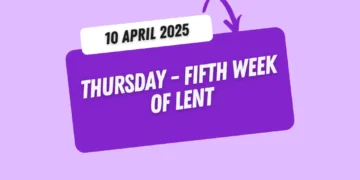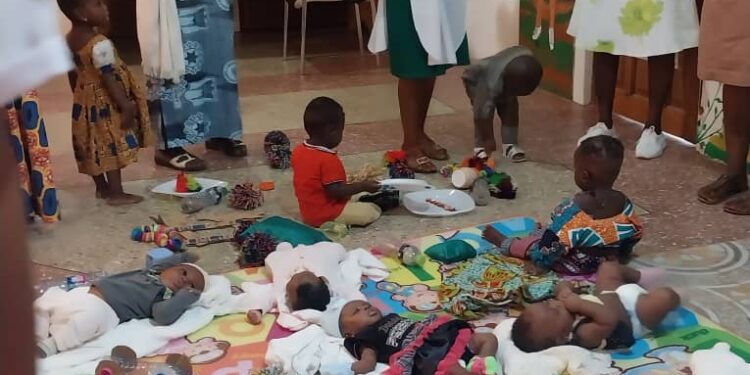Strengthening the Capacity of Religious Women in Early Childhood Development phase three (SCORE ECD III), funded by Conrad N. Hilton Foundation (CNHF) in partnership with Catholic Relief Services (CRS) is implemented through the National Associations and Congregations, which bring national-level reach and visibility at the Association level and deep-rooted community ties through the congregations.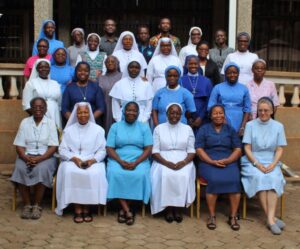
These National Associations include, the Association of Sisterhoods of Kenya (AOSK), Associations of Women Religious Institutes in Malawi (AWRIM), Zambia Association of Sisterhoods (ZAS), Conference of Major Superiors of Religious in Ghana and at the Regional level, the Association of Consecrated Women of Eastern and Central Africa (ACWECA). Phase III of the project runs from December 2021- Nov.2024.
In Ghana, the project is implemented in 10 Districts with seven Congregations through the Conference of Major Superiors of Religious in Ghana.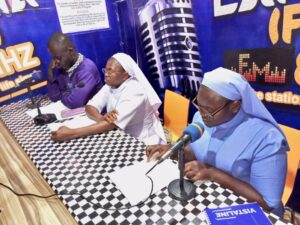
The overall goal is that children 0-3 years old in the target areas live in nurturing environments by 2024. This phase will increase technical capacity among Sister Congregations to deliver high-quality, equitable and integrated MBC/nurturing care and family strengthening services. Phase three also ensured that congregations have functional community-facility referral systems to enable timely access to services.
SCORE ECD III offered increasing opportunities for networking and peer learning among congregations, particularly between continuing and newly added congregations. The congregations in Ghana implemented the following components under phase III.
Household economic strengthening: SCORE ECD III capitalizes on CRS’ Savings and Internal Lending Communities (SILC) methodology to equip partners to integrate household economic strengthening into the program model. SILC is established to support community-based, user-owned, self-managed savings groups that are designed to serve those with little or no access to formal financial services.
SILC groups are formed and facilitated by field agents, who are recruited from the community and trained on the SILC methodology.
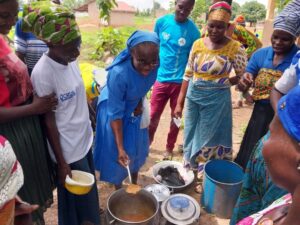
To enable the realization of the project goals, key intervention strategies such as IMBC/ECD training sessions, incorporating household economic strengthening activities and SMART Couples interventions.
Catholic Sister Congregations have been in the forefront in ensuring the delivery of these intervention strategies to project participants, while CRS provides the needed technical guidance, mentorship, and funding through the Conrad N. Hilton Foundation to Catholic Sister Congregations.
MY WORKING EXPERIENCE AS MEAL AND PROJECT CO-ORDINATOR
I was engaged by the Conference of Major Superiors of Religious- Ghana, in April 2023 to join the SCO
RE ECD III project team as a Monitoring, Evaluation, Accountability and Learning (MEAL) Officer and later Project Co-ordinator. I was enthused to have taken this challenge because I wanted to explore other job opportunities apart from my teaching and administrative profession so I welcomed this opportunity in the business field.
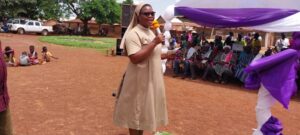
The implementation of the SCORE ECD III project has exposed me to diverse experiences: travelling across 10 Districts in three regions for monitoring and data collection and step down trainings, community durbar, adapting to climate change, culture and food and many capacity building workshops to strengthen and improve our knowledge in projects and field work by the Catholic Relief Services (CRS- GHANA) spearheaded by the CRS SCORE ECD III project team and other experienced facilitators and most of all, the liquidations.
In fact, the expertise from CRS coupled with their friendly support, patience, availability and accompanying the Conference team on regular field work, encouraged me to put in my best despite challenges that comes with the nature of work we do to bring joy and hope to project participants and beneficiaries of the project communities.
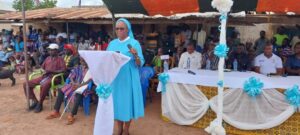
Implementation of this project has given me the opportunity for the first time to travel continuously across the Northern Region, Upper East and Savannah Region which was truly a blessing to me to know many places and enjoying their meal.
Indeed, my experience has been great and opened my mind to appreciate the different cultures and numerous languages. Trying a few sentences in Dagbani and other local languages any time the Conference and the CRS team visited the project communities. I have understood better what it is to undertake a qualitative and quantitative project implementation.
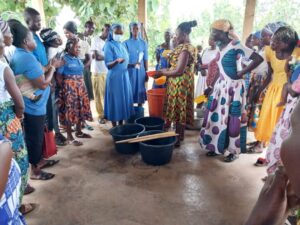
I coordinated with the Sisters , master trainers who work at both health and education facilities in Walewale, Nabdam-Kongo, Fumbisi in the Navrongo Bolgatnga Diocese, Chamba, Saboba, Sanguli-Tatale and Chereponi in the Yendi Diocese, Damongo, Tuna and Tinga in the Damongo Diocese. It was joy working with Sisters and understanding the impact they are making in the lives of people through this project.
Since the main goal of the SCORE EDD III is for children 0-3 years to grow in an enabling environment by gaining full family support in education, most family beneficiaries have testified to this transformational change in their homes.
Parents and caregivers of targeted children have been strengthened through community savings and loans to take care of the children.
The Sister Master trainers have improved their involvement and relation with project community members through home visitation, radio discussion advocating SCORE ECD III project, community engagements, community durbar, engaging traditional leaders, District Directors, Social Welfare Officers, Mental Health Nurses, the Church community and other partners to strengthen relations and sensitization drive.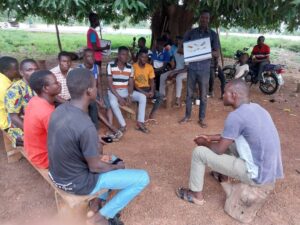
Most community members have testified that the implementation of this project has drawn them closer to Sisters. They were thinking the Religious Sisters only eat and pray but now, they see the sisters visiting them at home and having sessions with them.
